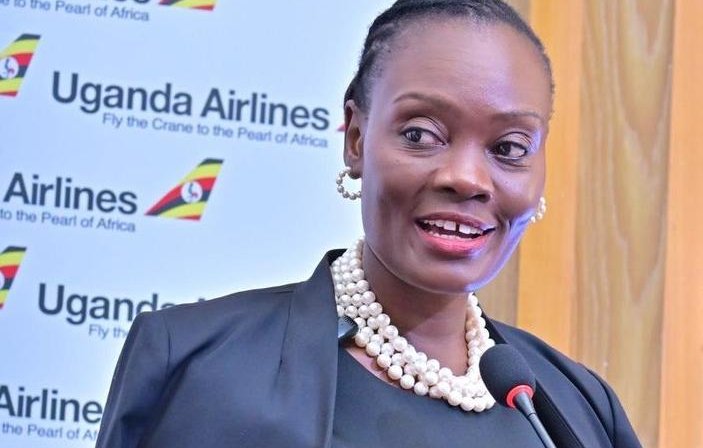Kampala: In July 2025, Uganda Airlines CEO Jeniffer Bamuturaki circulated an internal memo announcing she would lead a delegation to the United States for negotiations with Boeing. The team she selected included Chief Commercial Officer Adedayo Olawuyi, his aide Brenda Ninsiima, and two other officers, but notably excluded any technical staff no engineers, maintenance personnel, or pilots.
Bamuturaki then requested an official invitation letter from Boeing to help secure visas from the U.S. embassy in Kampala. Boeing’s reply stunned insiders, questioning why a team negotiating multi-million-dollar aircraft acquisitions had no technical experts. The letter, leaked to the State House and the airline’s board, prompted authorities to block the trip.
For many in Uganda’s aviation community, the incident exposed what they describe as a pattern of mismanagement, inflated contracts, and corruption under Bamuturaki’s leadership. Confidential state correspondences submitted to the Inspector General of Government (IGG) allege she attempted to shift the airline from Airbus to Boeing aircraft in defiance of the 2018 Cabinet-approved business plan, which had recommended Airbus for long-haul and mid-range routes based on cost efficiency and fleet optimization.
Minutes from a June 17, 2025, Ministry of Finance, Planning and Economic Development meeting reveal a sharp split between senior technical staff and executive management led by Bamuturaki. Technical directors, including the Chief Pilot, Head of Flight Operations, and Director of Maintenance, insist that Airbus A320-321neo aircraft remain the optimal choice for Uganda Airlines’ expansion. Despite these recommendations, Bamuturaki and her allies reportedly pursued Boeing acquisitions, including a 22-year-old Boeing 737-800 cargo jet priced at USD 31 million—USD 11 million above prior valuations—alongside plans for four Boeing 787 passenger jets and several 737 Max planes. Technical staff warned that the cargo jet’s engines were nearing mandatory replacement, concerns allegedly ignored.
Experts caution that such a fleet mix could lead to high training and maintenance costs and cite the troubled experiences of RwandaAir and Air Tanzania following similar Boeing-heavy expansions. Allegedly, the shift was justified based on a supposed directive from President Yoweri Museveni, which ChimpReports could not verify. Boeing officials confirmed they would provide after-sales support, including specialized pilot training and simulators.
Bamuturaki, contacted for comment, denied any wrongdoing. In a written response, she stated that Uganda Airlines is still operating within the 2018 business plan, that no Boeing procurement decisions have been finalized, and that discussions on cargo aircraft are ongoing. She also dismissed claims that Airbus was excluded for offering no commissions and insisted all fleet acquisitions will follow due process. “The airline is subject to statutory audits by the Office of the Auditor General annually,” she said.
Despite these assurances, aviation experts argue that the proposed fleet strategy could saddle Uganda Airlines with high operating costs, reduced efficiency, and elevated industry risks, highlighting a tense crossroads for the national carrier as it expands into long-haul operations.
